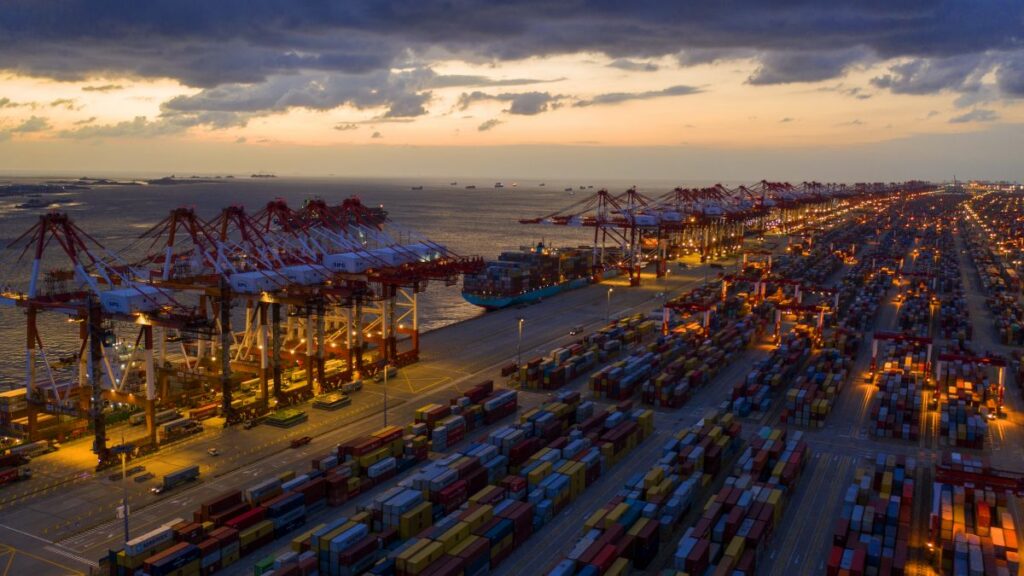Analysis: China’s disappearing ships: The latest headache for the global supply chain

Analysts say they started noticing the drop-off in shipping traffic toward the end of October, as China prepared to enact legislation governing data privacy. Usually, shipping data companies are able to track ships worldwide because they are fitted with an Automatic Identification System, or AIS, transceiver. This system allows ships to send information — such as position, speed, course and name — to stations that are based along coastlines using high-frequency radio. If a ship is out of range of those stations, the information can be exchanged via satellite.But that’s not happening in the world’s second-largest economy, a critical player in global trade. In the past three weeks, the number of vessels sending signals from the country has plunged by nearly 90%, according to data from the global shipping data provider VesselsValue.”We are currently seeing an industry wide reduction in terrestrial AIS signals in China,” said Charlotte Cook, head trade analyst at VesselsValue. China’s self-isolationChina’s desire to retain absolute control over all data and information within its borders isn’t surprising, as President Xi Jinping continues to reassert the ruling Communist Party’s dominance in every aspect of the economy and society.The country has been pushing for economic self-sufficiency as it faces external threats, such as US sanctions on Some top officials in Beijing have recently tried to quell concerns among global investors that the country is isolating itself from the rest of the world as it prioritizes national security.Chinese Vice President Wang Qishan, considered a trusted ally of Xi, told the Bloomberg New Economy Forum in Singapore that China would not “develop isolated from the world.” Speaking via video, he also called on countries to keep supply chains “stable and smooth.”But China has embraced policies during the coronavirus pandemic that often appear to do otherwise.For example, during the pandemic Xi has doubled down on his push for self-reliance, stressing the need to create “independent and controllable” supply chains to ensure national security.And the country’s sweeping clampdown on tech extended this summer to foreign IPOs, when the Cyberspace Administration of China proposed that major companies with more than a million customers seek approval before listing shares overseas. As with the recent data privacy law, the agency cited concerns about whether personal data held by those companies could be exploited by foreign governments.China’s actions this year may come at a cost, though, if the country goes too far in its attempt to protect itself from perceived foreign interference.– CNN’s Beijing bureau contributed to this report.






